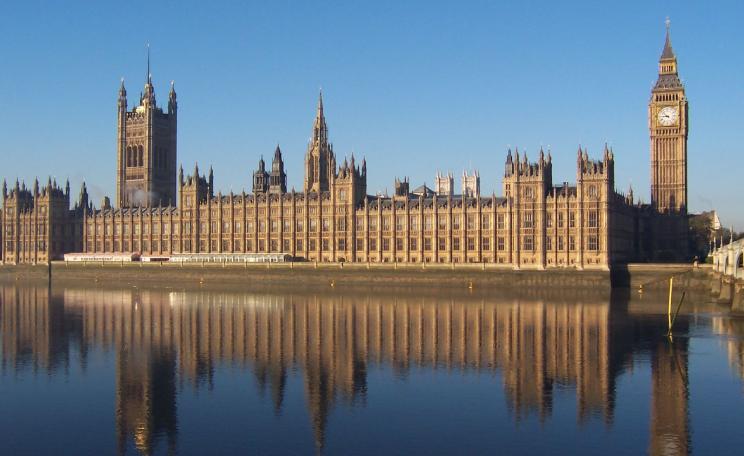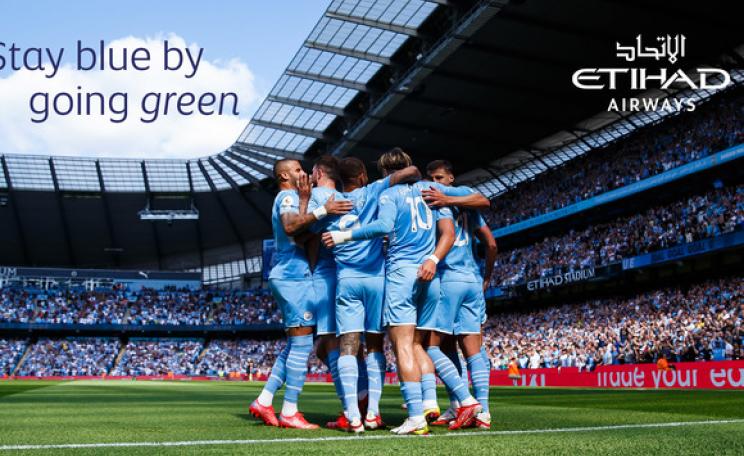The sheer prevalence of high-carbon advertising and sponsorship during the Champions League also runs counter to the organiser’s own environmental ambitions.
The UEFA Champions League is entering its final stages. The tournament is firmly at the apex of football, with the biggest men’s and women’s teams from across Europe going head-to-head in pursuit of club football’s highest accolade.
Fans the world over tune into this festival of football, both for the love of the game, but also because they wouldn’t want to miss out on the drama.
Yet it isn’t just titans of football that the Champion’s League brings together - some of the biggest polluters on the planet are given free reign to advertise to spectators around the globe.
Unparalleled
Everything from shirt sponsors and pitch side hoardings, to the television adverts that accompany every game, are drenched in high-carbon sponsorship from fossil fuel-funding banks, aggressively expanding airlines and polluting SUV manufacturers.
These companies are disproportionately responsible for undermining the environment that the beautiful game relies upon. And with concern over climate rising up the agenda - within football and beyond - these adverts and sponsors look increasingly out of place.
Lucrative sports sponsorship deals are not some fortuitous coincidence. High-carbon industries use sport to launder their image and push their planet-warming products because the audience of sport - and especially the Champions League - is unparalleled.
Dreams
The 2022 Men’s final, which saw Emirates-clad Real Madrid lift the trophy, pulled in an estimated 700 million viewers worldwide - more than three-times as many people that tuned in to the 2022 Super Bowl. This level of international reach is the stuff of advertisers’ dreams.
Reach is one thing, but tangible impact is another. Research shows that fans and spectators begin to associate the intense collective emotion of sport with the brands that sponsor the teams and tournaments.
This results in fans building positive associations with certain brands, often overlooking their more questionable and damaging practices.
The fact that the global sports sponsorship market reached a valuation of nearly $78 billion in 2022 is testimony to its effectiveness.
Humanity
Big polluters’ ability to interact with and influence spectators around the world through the Champions League is cause for concern given the crucial juncture humanity finds itself at.
The sheer prevalence of high-carbon advertising and sponsorship during the Champions League also runs counter to the organiser’s own environmental ambitions.
To prevent global temperatures from breaching 1.5°C, global emissions need to halve by 2030 - just seven years time - before hitting net zero by 2050.
This is already a herculean undertaking without actively promoting the very goods and services that are continuing to drive emissions even higher.
The emissions from many of the products being pushed through the Champions League are accelerating.
The carbon emissions from the global SUV fleet, for instance, hit nearly one billion tonnes in 2022, more than the combined national emissions of the UK and Germany in the same year. If SUVs were a country, they’d rank as the sixth largest polluter.
Injustice
Likewise with air travel. Roughly 47 percent of all the CO2 emissions ever emitted by air travel have occurred since 2000 and, despite the dubious claims of many airlines, there is no scalable low carbon technology currently available to even slow the growth in aviation emissions.
A recent study from the Royal Society found that if UK aviation were to turn to the much-hyped biofuels, it would require half of British farmland just to maintain current passenger levels.
The only feasible way to bring down aviation emissions is to reduce the demand for flying - and halting the advertisement of airlines would be the first step in achieving this.
While the current trajectory is worrying enough, it overlooks the injustice of climate change.
The high-carbon goods and services of the companies plastered on the shirts of the Champions League hopefuls are overwhelmingly consumed in wealthy and industrialised nations.
SUVs
These countries need to be cutting their emissions harder and faster than developing nations, which have done the least to create this crisis but are already suffering at its hands.
Buying more SUVs and round-the-world flights is a dereliction of duty by those who have benefited the most from the fossil fuelled-economy.
The sheer prevalence of high-carbon advertising and sponsorship during the Champions League also runs counter to the organiser’s own environmental ambitions.
UEFA has been a vocal member of the United Nation’s Sports for Climate Action Framework, an initiative that seeks to align international sport with the goals of the Paris Agreement.
Pledged
Signatories must adhere to the framework’s five principles, which include undertaking systematic efforts to promote greater environmental responsibility, reducing overall climate impact, and promoting sustainable and responsible consumption, amongst others.
UEFA has also pledged to hit net zero by 2040, with a 50 percent reduction by 2030, but the details on how they will do this - or when the reductions will start - are yet to materialise.
But allowing big polluters to use UEFA’s Champions League as a billboard to push their products not only runs counter to these principles, it makes achieving them impossible.
Acting urgently and decisively to push out big polluters would allow UEFA to claim climate leadership and communicate to its vast audience that now is the time for concerted climate action. UEFA regulates the ads that can be shown on shirts and around the pitch, so change is possible.
UEFA ended its decade-long sponsorship deal with Russian fossil fuel giant Gazprom in the wake of the invasion of Ukraine, forgoing tens of millions of dollars in income on moral grounds.
Tabacco
There are other precedents in sport. Take tobacco, for example. After years of campaigning, sports organisations banned tobacco sponsors and ads.
This occurred because of the overwhelming consensus that tobacco is a clear threat to human health. In the 1970s, Dutch football legend Johan Cruijff was the face of a tobacco ad campaign. But once Cruijff fell ill, he became an active anti-smoking campaigner.
Once tournaments, clubs, players, and the wider public acknowledged the harms caused by tobacco products, the advertisements were banned.
The same consensus is now emerging around fossil fuels - although reducing humanity’s reliance on them is far more complex.
Air pollution itself kills 9 million people a year, and the impacts of the climate crisis will bring extreme heat, droughts, and diseases to billions worldwide.
The WHO has called the climate crisis the biggest health threat facing humanity. It impacts every aspect of our lives, including football. Drought, extreme rain, and intense heat threaten players, fans, and the pitch we all gravitate around.
Future
Today, young players wear shirts with the logos of companies perpetuating the climate crisis, from StandardChartered to QatarAirways.
How much longer can clubs, tournaments, and sponsors expect Haaland, Vinicius Jr., Mead, and Katato to be running billboards for companies destroying their - and our - future?
These players are the future of the game and have many years on this planet ahead of them. If UEFA really cares about the game, the players, and the fans, it must kick-out those high-carbon sponsors that are threatening our future.
These Authors
Frank Huisingh is the founder of Fossil Free Football, a group of football fans campaigning to kick fossil fuel sponsors and ads out of football. Freddie Daley is a campaigner with Badvertising, the campaign to end advertising fuelling the climate crisis, and a researcher at the University of Sussex.







